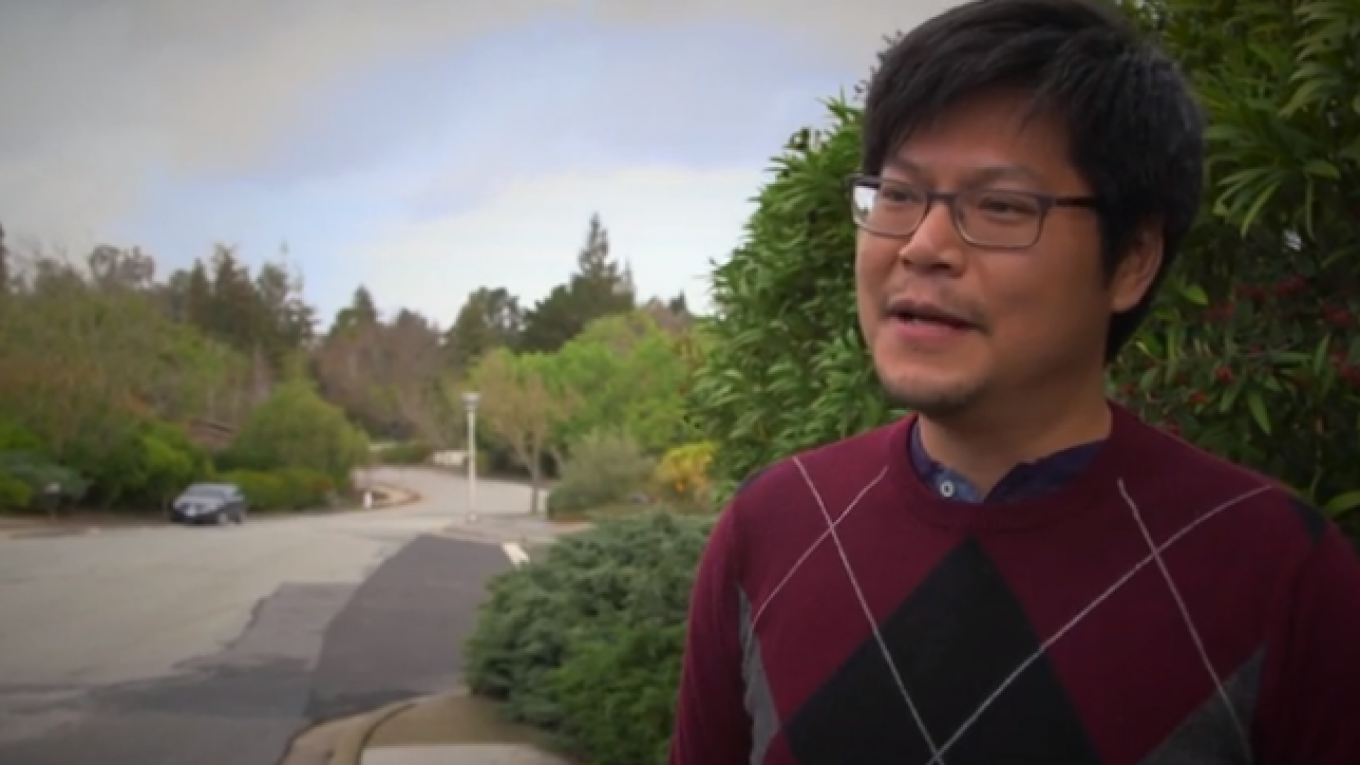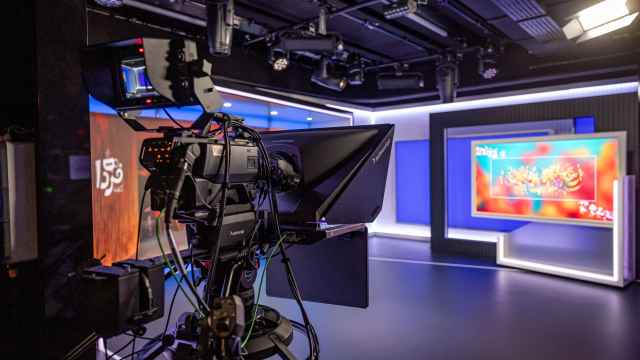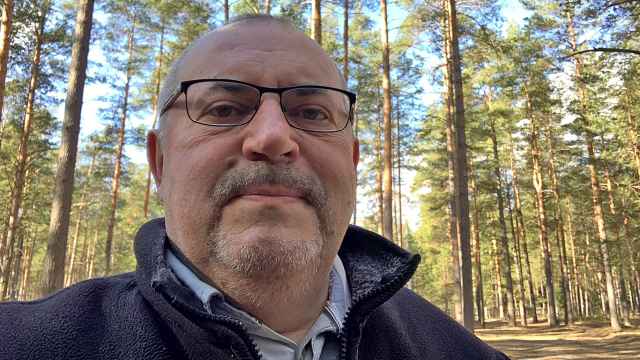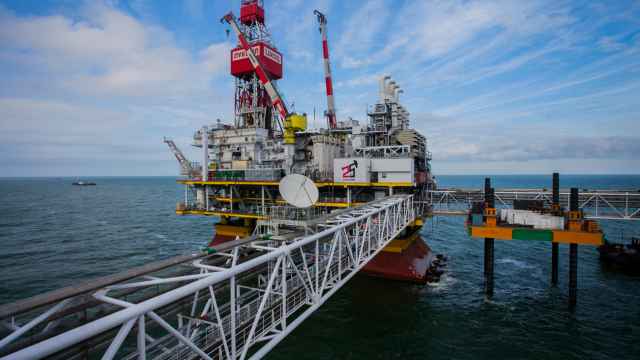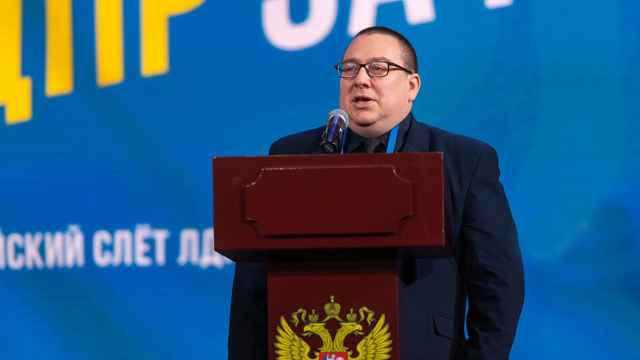Stanford Assistant Professor Chao-Lin Kuo telling Andrei Linde about the discovery. (Stanford University / YouTube)
Researchers working at BICEP2 telescope on the South Pole have reported a startling discovery that appears to validate the theories of an influential Russian physicist, thereby revolutionizing our understanding of the creation of the universe.
"We have made the first direct image of gravitational waves, or ripples in space-time across the primordial sky, and verified a theory about the creation of the whole universe," said Stanford Assistant Professor Chao-Lin Kuo, one of the leaders of the BICEP2 project, a collaboration between Stanford and Harvard Universities, the National Science Foundation and NASA, among others.
The cosmic inflation theory was first proposed by physicist Alan Guth in 1980 and significantly expanded upon by Russian physicist Andrei Linde in 1983.
The theory states that in the immediate aftermath of the Big Bang the "universe expanded by 100 trillion trillion times in less than the blink of an eye," a NASA statement describing the discovery said.
Linde hypothesized that inflation was propelled by gravitational waves that pushed the fabric of the universe outward faster than the speed of light, therefore transforming it from a tiny point to a massive structure in a few trillionths of a second.
A video posted Monday on YouTube shows Kuo delivering the news to Linde and his wife — both of whom are physics professors at Stanford University — at their home in Palo Alto, California.
Although the discovery has to be independently verified by other scientific teams, there is every indication that the findings are genuine, and Linde was shocked and deeply moved when he heard the news.
"If this is true this is a moment of understanding of nature of such a magnitude that it just overwhelms and — let's just hope it is not a trick," Linde said. "I always live with this feeling, what if I am tricked, what if I believed in this just because it is beautiful … yes, so it is really helpful to have [discoveries] like that."
BICEP2's findings mark the first time that gravitational waves have been observed, and support Linde's work because "alternative theories do not predict such a signal," Linde said, adding that "this is something I have been hoping to see for 30 years."
Linde, the son of two physics professors, was born in 1948. In 1971 he graduated from Moscow State University with a degree in physics before completing a PhD at the Lebedev Physical Institute in 1974. From there he embarked on an accomplished career in physics, expounding a number of cosmological theories about the creation of the universe. In the early 1980s he modified Guth's model of inflation to arrive at a theory known as "new inflation" and then later expanded it to "eternal chaotic inflation," which both corresponded with observations of the universe.
A Message from The Moscow Times:
Dear readers,
We are facing unprecedented challenges. Russia's Prosecutor General's Office has designated The Moscow Times as an "undesirable" organization, criminalizing our work and putting our staff at risk of prosecution. This follows our earlier unjust labeling as a "foreign agent."
These actions are direct attempts to silence independent journalism in Russia. The authorities claim our work "discredits the decisions of the Russian leadership." We see things differently: we strive to provide accurate, unbiased reporting on Russia.
We, the journalists of The Moscow Times, refuse to be silenced. But to continue our work, we need your help.
Your support, no matter how small, makes a world of difference. If you can, please support us monthly starting from just $2. It's quick to set up, and every contribution makes a significant impact.
By supporting The Moscow Times, you're defending open, independent journalism in the face of repression. Thank you for standing with us.
Remind me later.


